By Lise Benoist
In France, the far right’s acknowledgment of environmental threats serves a racist and nationalist agenda. This narrative is fed and spread by the far right metapolitical sphere, which revives a conservative and Malthusian conception of ecology along the nature-territory-identity trinity. This essay recounts one of their colloquiums on the topic, titled “Nature as a base”.
“The economy devours the society, the economy does not meet humans’ needs any longer, and humans now have to work to satisfy the needs of a growth that has gone mad. […] The means of life are destroying life itself, and the obsession for an infinite growth on a finite planet has become the first threat to humanity.”
This certainly sounds like a quote taken from the work of a degrowth scholar. Yet, these words were pronounced by Hervé Juvin, the head candidate of Rassemblement National (the main French far-right party), when invited to a public radio channel to present the ecological ambitions of the party in the weeks previous to the to the 2019 EU Elections. After being elected as an MP, he later defended “localism” as the only worthy solution to the climate crisis. As he put it, beyond the economic sovereignty concern, localism appears to be first and foremost about countering “the fall of the diversity of human societies” in front of “the uniformisation” caused by “naïve globalisation”.
Juvin’s words on public radio are representative of several dynamics at work. The first is the normalisation of the presence of the far right and its characteristic themes in the public debate. This contributes to the progressive conquest of the political and media spheres by the categories and obsessions of the far right. The second, which feeds the first, is the metapolitical enterprise initiated by the French far right in the late 1960s around the GRECE (Research and Study Group for the European Civilization), later referred to as the Nouvelle Droite (New Right) movement. This enterprise has been embodied by the thinker Alain de Benoist and his publications. The choice of metapolitics is the one of a cultural fight, outside of parliamentary politics. The underlying belief is that ideological transformation is a precondition to political change, a transformation that takes the shape of a battle of ideas waged today by and through numerous media outlets, organisations and key personalities.
In the wake of the counter-hegemonic thought of Antonio Gramsci, these metapolitical actors claim to be “Gramscians of the Right”, fiercely combatting a cultural hegemony perceived as neo-Marxist, in which a mishmash of feminist, anti-racist, LGBTQIA+, and anti-capitalist struggles go hand in hand with the defence of a “globalist ecology” and its climate justice demands. The third visible evolution is that the issue of ecology has be seemingly moved to the forefront of the preoccupations of parts of the French far right. On the parliamentarian side this is marked by the 2019 EU elections and the Rassemblement National ambitions to create an “ecological civilization in Europe”, whilst in the extra-parliamentarian sphere it reawakens a dormant theme.
In this context, in 2020 the Institut Iliade devoted its annual colloquium in central Paris to the topic, under the title “Nature as a base – for an ecology the right way up”, [La nature comme socle – pour une écologie à l’endroit] . This Institute “for the long European memory” is a sort of heir to the GRECE, a think tank that gathers numerous personalities of the Nouvelle Droite and works, by means of trainings, publications and conferences, for the “awakening of the European consciousness”, calling for “the defence of our civilization” in front of “the great replacement”. This trendy conspiracy expression refers to the alleged phenomenon of ethnic and cultural substitution, a “replacement” of the white European population by not only non-white people but, most dangerously, Muslims. This obsessive assumption is picked up and used today by the quasi-totality of the French far right, from the Rassemblement National to the Identitarians and the royalists of the Action Française. But it also spreads through public opinion. A survey proves that this belief, which can seem ludicrous at first glance, has managed to convince almost one in four French people. The influence of the metapolitical soft power of the far right should not be underestimated.
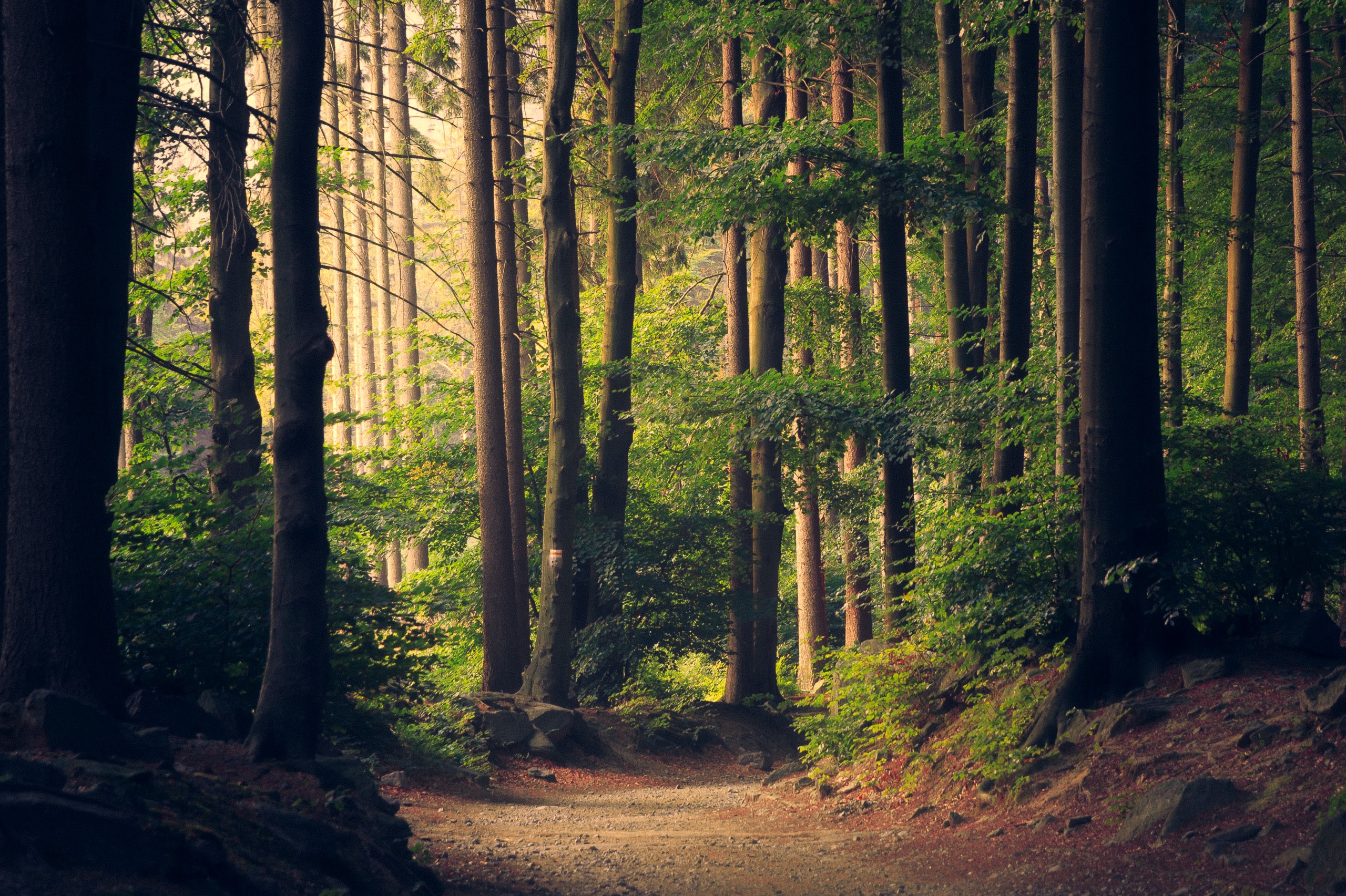
Source: https://unsplash.com/photos/jFCViYFYcus
I leave the full genealogy of the emergence of ecology within the French far right to the works of Stéphane François or Zoé Carle most notably, but it is crucial to mention a fundamental concept to this understanding of ecology: ethno-differentialism. As a response to the threat of ethnic and cultural “replacement”, which culminates in the adjacent one of homogenisation and uniformisation of the population, the far right claims to defend the plurality of peoples and cultures. This diversity is, according to them, highly threatened by a wild globalization, the Western consumption society model, and mass migration. Therefore, only strong physical borders can prevent a loss of difference and keep every people where they belong.
Respecting this “diversity of cultures” presupposes an identitarian essentialization of each of them, which would be endangered by external influences. This right wing differentialism therefore maintains the incompatibility of cultures with one another, and consequently of people. As such, it abides by the idiom “good fences make good neighbours” and opposes the undesirable “utopia” of multiculturalism. Undercover of a “right to difference” lies a cultural and differentialist version of racism.
This mono-ethnical vision of the community is only one step away from Juvin’s “localism”. It is the primary motivation behind the ecological thought of the far right, which translates into an ecology of populations, or even an “ecology of civilizations”. Juvin is clear: “the destruction of the diversity of human societies is […] even more serious than biodiversity loss”. And continues: “the right to migrate is the right of the universal nomad […] but ecology starts with the responsibility of transmission”, transmission of a “territory received from [one’s] parents and great parents”.
Being rooted in a territory considered as one’s own is a precondition to an “ecology the right way up”, therefore inseparable from identitarian struggles. As argued accordingly by Jordan Bardella, the new face of Rassemblement National, “the best ally of ecology is the border”. A slogan that fits perfectly with the Juvinist tradition which considers the border as a prerequisite to a “realist politics of diversity […] and the only way for peace between the people”, but also in line with the necessity to “defend one’s biotope against invasive species”. This is a good example of “green nationalist” politics that tries to unite a national community in the name of protecting its environment.

Source: Illustration made by the author. Original photo retrieved from official communications of the RN.
Straightaway, from the welcome desk of the colloquium “Nature as a base – for an ecology the right way up”, I am struck by the bourgeoisie atmosphere reigning in the rooms. Most of the participants are dressed in their Sunday best: Tyrol jacket and loafers for men, skirt or dress for women, in full respect of traditional gender dress code. The hall that precedes the conference room hosts a variety of stalls, a strong symbol of the metapolitical presence. The mix is incongruous: identitarian organizations presenting their activities and commitments, sales of books and magazines, but also of 100% natural soaps, wooden bowls and tools, metal regional coats of arms, pagan embroideries, and organic fruit juices at the refreshment stall – all with guaranteed French production. The atmosphere is at the crossroads of a local organizations’ fair and a Völkisch Christmas market.
Génération Identitaire, a youth movement (dissolved in March 2021) organising direct actions to denounce “the immigration-invasion” and “anti-white racism” mobilized its mediatic personalities for the occasion: Clément Martin and Thaïs D’Escufon. An activist explains to me that they would like to “do something” in Greece but that it is “too complicated” for now. The Collectif Némésis preaches its identitarian feminism, because “there is no shame in being right-wing and feminist”. This collective also holds the fight against immigration as their main objective, since this phenomenon allegedly hinders Western women to have access to the public space. The organization La Citadelle, “home of identity” in Lille is also present with its president Aurélien Verhassel, convicted in 2018 for violence, and famous since Al Jazeera’s investigative documentary revealed the common use of racial and religious insults as well as Nazi salutes among its members. An activist however asserts that the documentary was “good advertising” and has given them “a lot of new members”. Academia Christiana, an organisation for “rooted Catholics”, promotes, among other things, its summer university featuring speakers such as Jean-Yves Le Gallou, a former Front National executive and co-founder of the Polémia foundation and of the very Institut Iliade, or Charlotte d’Ornellas, journalist for CNews and Valeurs Actuelles.
A bit further in, one finds the Rucher Patriote, a nationalist version of a people-to-people online network where only real patriots can interact to find a babysitter, an apartment or donate and receive second-hand objects. Among the literary and media stalls, there are the newspapers and magazines Présent, La Nouvelle Alsace, Lohengrin publishing house, Les amis de Jean Mabire, Livr’arbitres, the trio Éléments, Krisis et La Nouvelle École (de Benoist’s magazines), La Nouvelle Librairie of François Bousquet, but also Méridien Zéro and TV Libertés, which are reporting on the event. Among the books for sale, it is surprising to see La Grande séparation of Hervé Juvin or Demain la décroissance! from Alain de Benoist side by side with several books of the Anthropocene collection of the Seuil publishing house, such as the ones on economic and ecological collapse (unsurprisingly, Malcom Ferdinand’s book on the need for a decolonial ecology has not be chosen for display.)
Throughout the day, I attended a succession of presentations and roundtables in the auditorium, interspersed with videos showing romantic landscapes and white women in traditional dresses, as well as musical breaks. The speakers quote Polanyi, Heidegger and Ellul. Thirteen men and one woman successively set out arguments aimed at deconstructing the left and progressive “climanipulation”, in order to preserve a nature deemed as sacred. Graeco-Roman mythology is a source of reference for every speaker, in line with the pagan beliefs of the Nouvelle Droite. Philippe Conrad, president of the Institut Iliade, opens the day with a tribute to Dominique Venner and his idea of returning to the land, to the roots, in front of those who think of themselves as citizens of the world. He also introduces a theme celebrated by some: the criticism of economic growth. For years, Alain de Benoist has been speaking of décroissance which even led to controversial collaborations with the French economist Serge Latouche in Éléments or Krisis. François Bousquet also emphasizes the necessity to choose between décroissance and “catastrophe”, bashing left-wing ecologists for what he perceives as incoherencies: “they speak about nature, but not about human nature. They relocalise the economy, but not humans. They don’t want GMOs in their plate, but they want transgenders in the society.” Michel Maffesoli, a renowned sociologist interested in the social bound in postmodern societies, praises the benefits of his “ecosophy”, an ecological philosophy in which humans must reconnect with an original order of natural and social relations. Jean-Philippe Antoni brings ecology back to the study of fauna and flora, a reality that he argues has been hijacked and “deceptively” appropriated by political ecology. He feeds the idea of a rooted ecology by representing the territory as a place of transmission of the past and of identity or, in other words: “We are the land”. Slobodan Despot, columnist in Éléments and ideologist of the Swiss far right, takes over for a poetic anti-nuclear power speech. Then comes Anne-Laure Blanc, who has several accolades: author of children’s books, Le Gallou’s partner, and daughter of the former French SS Robert Blanc. She goes on about a romantic vision of mountaineering, symbolic practice extrapolatable to a full way of life: “follow the track of the elders, make our own track, and leave no marks”.
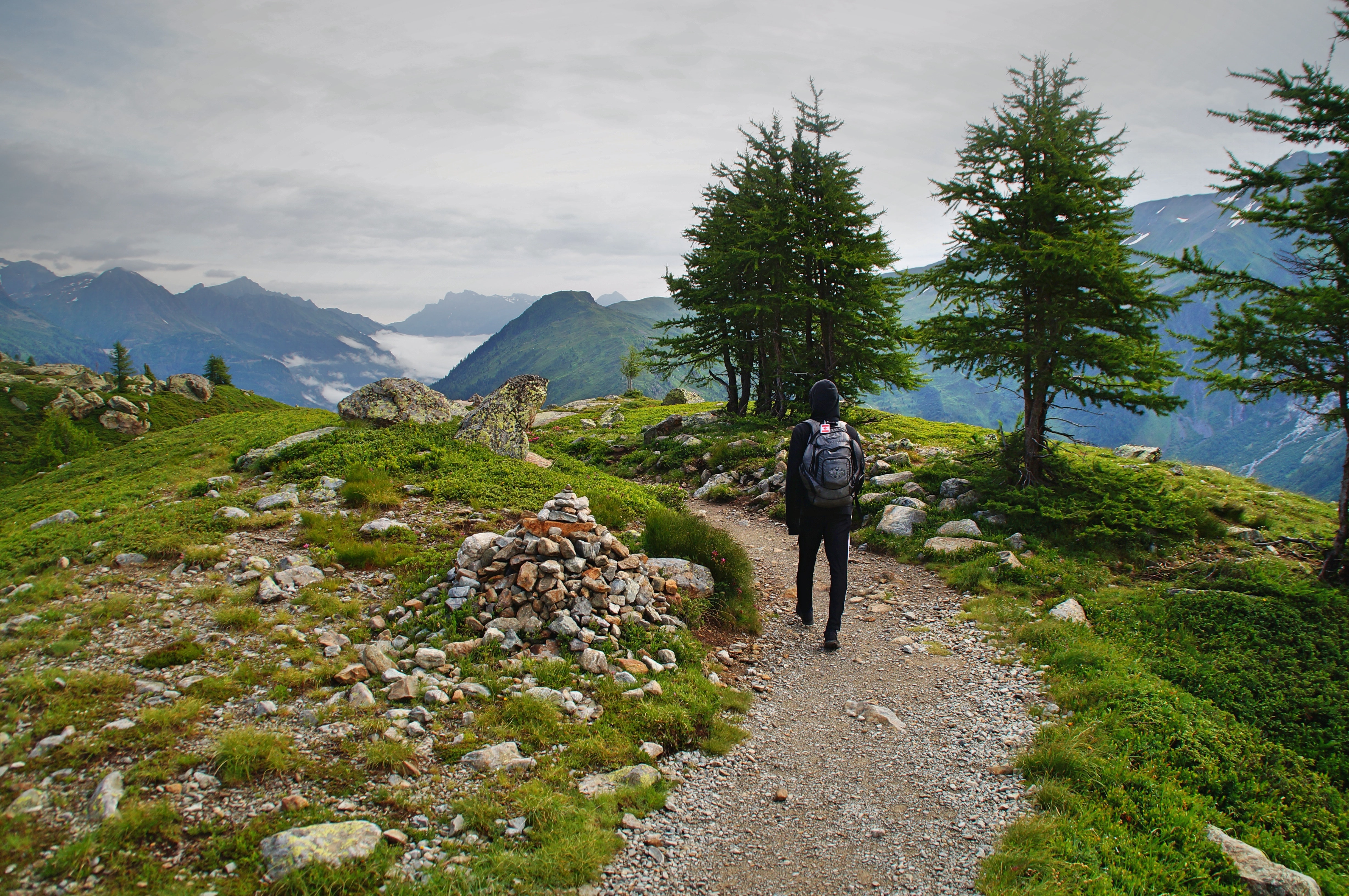
Source: https://unsplash.com/photos/_Ojb8Te7tyI
Afterwards, follows the roundtable between Hervé Juvin, whose political affiliation to Rassemblement National is not mentioned, and Julien Langella, founder of Génération Identitaire and vice-president of Academia Christiana. Fabien Niezgoda, the chair of the session, is a member of the Independent Ecologist Movement (MEI) of Antoine Waechter, who was originally part of the Greens which he left in 1994 when the party officially associated itself with the Left. Back then, he was already promoting an ecology intrinsically linked to identity and the land. The litany of identitarian rootedness goes on: relocalisation, lowering taxes for local products, local food in school canteens, with the goal of becoming “identity missionaries”. This roundtable illustrates well the convergence of the parliamentary far right with the extra-parliamentary ultra-right who, in spite of their strategic divergences, meet on a criticism of globalized capitalism, the marketisation of nature and the alienation caused by the modern forms of life. These criticisms make common grounds for a rooted ecology that defends local territory as well as European heritage and the necessary heterosexual, nuclear family.
“Nature as a base” is a slogan that perfectly synthesises their worldview: nature justifies social order, a criterion that allows to differentiate what is “natural” (hence legitimate), from what is “counter-natural” (hence illegitimate). It is what underlies their inequalitarian worldview, in strict opposition to the universalism of human rights, considered nonsense. They also oppose the idea of equality between men and women, arguing instead for “complementarity”. Le Gallou argues: “Taking nature as a base […] is to take into account the differences between populations, between sexes, between cultures, which play approximately the same roles as genes between people and races”. A “realist anthropology”, according to Levavasseur, whose text explain that culture is always connected to a territory where limits, in the shape of borders, are the very conditions of the existence of these cultures in their diversity. Without any scruples, he therefore advocates referring to genetics to identify the different identities.
The ultimate enemy is “the liberal-libertarian ideology” from where ensues the “the delirious globalist ecology”, which on top of destroying landscapes through the construction of wind turbines and solar farms, is “determined to blame Europeans in order to better ‘deconstruct’ their identities and traditions”. The speakers criticise left-wing progressivism, which, they argue, sees ecology through the prism of intersectionality and considers the “European white and heterosexual male” as the origin of all evils. In light of this personal and civilizational criticism, it is the very positionality of the speakers that is frontally attacked. Their response is clear: colonization also needs to be put the right way up. They are the Indigenous, while the true settlers are the immigrants. They refuse to do penance for a colonial past, and in opposition to the Black Lives Matter movement, they clearly say no to kneeling down. They are rooted “Europeans who stand up”, to whom ecology is first and foremost identitarian and to be saved from the leftist appropriation, which uses it for globalist purposes.
At the closing intervention of the colloquium, Jean-Yves Le Gallou puts forward the “hypothesis” of the anthropogenic causes of climate change – not without first having expressed the usual litany of climate-denialist arguments (“is it really a catastrophe?”; “the climate has always changed”; “we would need a real balanced debate on the topic”). He points out that if he was to acknowledge that CO2 induced temperature rise, Le Gallou would defend three policies: the end of free-trade, increased nuclear power capacity – the only way to produce “clean” energy – and the end of immigration: going hand in hand with “remigration”, or the return of migrants “in their country”. Because “everyone knows”, he says, that “an African in Europe has a carbon footprint ten times higher than an African in Africa!”. Applauses.
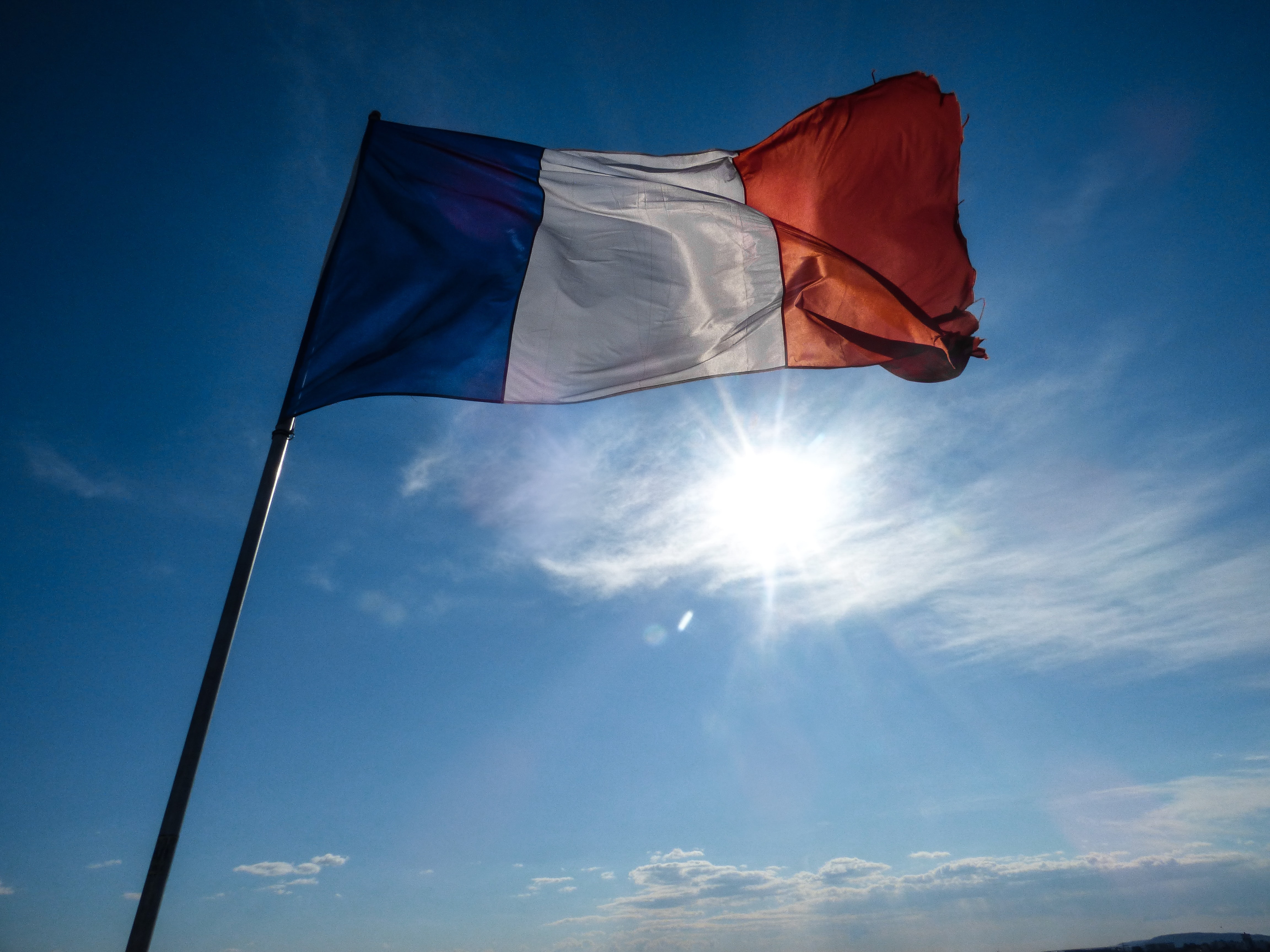
Source: https://unsplash.com/photos/nN7fHyaiIJ8
Metapolitical enterprises inevitably feed the success of such ideas on the electoral scene, both spheres functioning like communicating vessels. The Iliade Institute is only one organization among many. Magazines, newspapers, YouTube channels, blogs, radios, trainings, local groups… the list is endless. For the far right, “ecology” justifies a profoundly ethno-differentialist, inequalitarian and conservative worldview. A ready-for-use instrumentalization which serves a racist and identitarian political agenda. The “ecological surge” of Rassemblement National does not, however, translate into concrete actions against climate change. For instance, they opposed the proposal of the EU Parliament to implement more ambitious climate objectives. Not so long ago, the party was renowned for Jean-Marie Le Pen’s climate-negationist lines. Recently, however, Rassemblement National’s “ecological” strategy has been centered around “localism”, with the public announcement of a “counter-ecological project” in March 2021. This included the release of a “Localist Manifesto”, clearly stating that ecology is first and foremost linked to “the happiness of being French” and the “security” provided by being “among one’s own people”.
Beyond an obvious opportunism, the far right relies on the spectre of an ecology mainly preoccupied with population control within a romanticized nature. A neo-Malthusianism that feeds the ecofascist movement since its beginning and the terrorists that claim to belong to it (Brenton Tarrant, the terrorist killing 51 people in two Mosques in March 2019 in Christchurch, New Zealand, had titled his manifesto The Great Replacement). The eco-identitarian conception on the current far right rides on a conservative and reactionary wave of ecology, sometimes forgotten since the theme was associated with the Left. As it is here, “ecology” can be presented hand in hand with a white conception of the “local”.
As the climate crisis worsens, it will become harder to deny it. A green nationalist narrative might therefore become more and more attractive for the (very) right wing of the political spectrum. Yet, it is neither conceivable nor desirable to make any alliances with those who think that “biological determinisms” cause an unalterable social order, ruled by hierarchies between people and sexes thought as natural. Attempts to blur the left/right divide and replace it with a globalist/localist one, emphasise the need for left-wing ecology to (re)position itself clearly and reclaim discourses of localism, degrowth and sustainability transformations, that must inherently be connected to anti-racist and anti-nationalist struggles, not to mention international solidarity.
_
Lise Benoist is a member of the Zetkin Collective. Her research focuses on the political ecology of the French far right, and she graduated from the Human Ecology Master program at Lund University with a master thesis on the topic.
This blog piece was translated and adapted from a paper originally published in Terrestres.



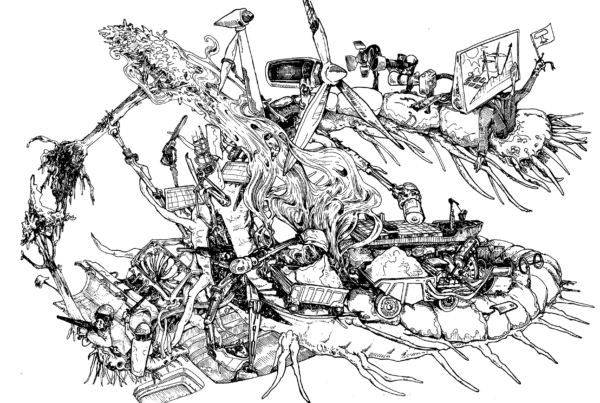
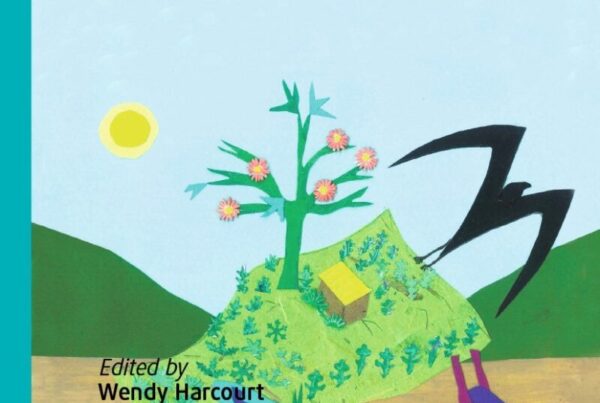
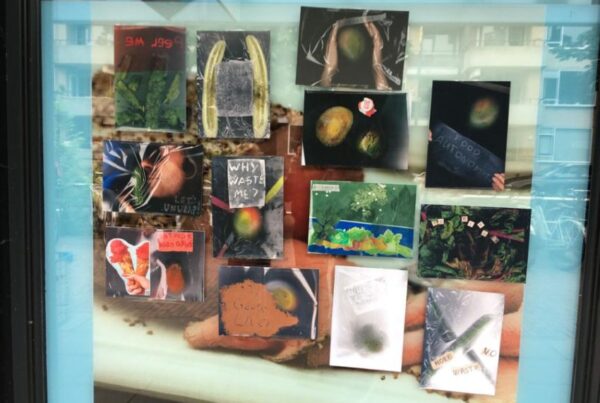

Thankyou, a really interesting article. I wondered how widespread these views are right now across France? I lived with them in London and other places growing up in the 1970s, and I saw some of them resurface during the Brexit debacle [more about anti-immigration than ecology). But in the francophone world, I only really encountered them directly in Nouvelle-Calédonie (je parle français). Do such views track or correlate with the Le Pen vote (which can be large I know) or are they really just a much smaller minority? And what is the spatial distribution of people adhering to « déterminismes biologiques »? Merci Simon
Hello Simon! Thanks for reading and commenting; and sorry to reply only now. I wish I could say that these were opinions of marginal groups, but unfortanely it definitely transpires into the electoral scene. Being immersed into the topic surely creates a bias, but the revival of a “right-wing ecology” (both as an opposition to a left-wing ecology and as a “real project”) is certainly on its way to the mainstream, with the need to talk about ecology become more and more difficult to avoid. I mention at the end the creation of the movement “Les Localistes”, officialy a RN-affiliated organisation, which is I believe going to increase in importance and in the media in the coming months with the perspective of the presidential elections next year. Currently the RN electoral campaign for the regional elections cleary features the localist theme, with both Hervé Juvin and Andréa Kotarac leading lists in two different regions. Because they speak of an identitarian version of ecology and localism, it is inherently anti-islam and anti-immigration, as it is both for the preservation of French traditions and against flows of people leaving their “natural environment”; a type of Green Nationalist narrative definitely matching with what’s happening in the UK (my friend and colleague Anoushka Zoob Carter is a member of the Zetkin Collective focusing on the UK, I recommend you check out her work!). Generally, RN people avoid talking openly about “déterminismes biologiques” of course, but benefit from metapolitical actors who do, feeding their narrative of a fixed “nature” that needs to be protected as such. They prefer to speak and “human ecology” and “diversity”.
I cannot answer on the spatial distribution, but keep this in mind for further studies.
N’hésitez pas à me contacter si vous voulez poursuivre la discussion!
A few other sources for you to look at, if interested (in French):
https://video.lefigaro.fr/figaro/video/herve-juvin-rn-nous-sommes-les-vrais-ecologistes/
https://www.youtube.com/watch?v=K9KFR_mlBRI&t=318s
https://www.juvin2021.fr/2021/05/24/ecologie-nationale-medias/